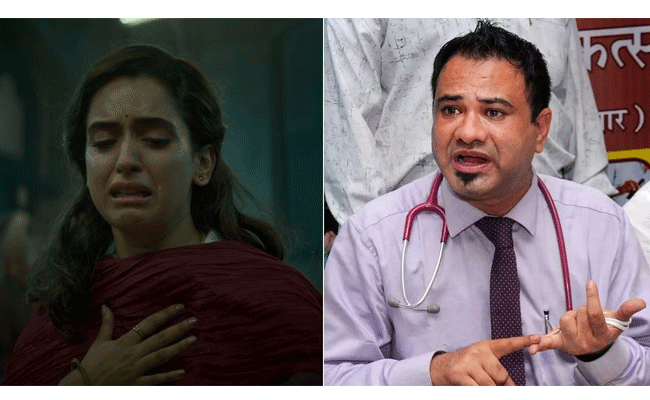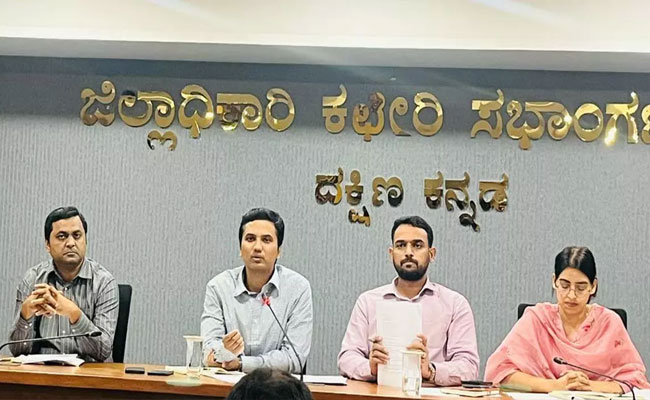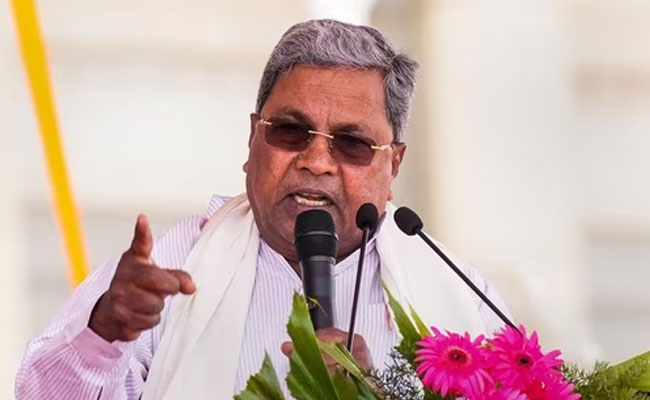Gorakhpur UP: In a letter addressed to Bollywood superstar Shah Rukh Khan, Dr. Kafeel Khan, the former Assistant Professor at BRD Medical College in Gorakhpur, expressed his profound appreciation for Shah Rukh Khan's latest blockbuster film, "Jawan."
The movie, which delves into the tragic Gorakhpur Encephalitis incident, resonated deeply with Dr. Kafeel Khan, who himself had a personal connection with the incident and its aftermath.
In his letter, Dr. Khan commended Shah Rukh Khan's commitment to using cinema as a powerful medium to shed light on critical socio-political issues. He praised the film's poignant portrayal of the Gorakhpur tragedy, emphasizing the urgency for accountability within the healthcare system, a theme that "Jawan" powerfully conveys.
While acknowledging that "Jawan" is a work of fiction, Dr. Kafeel Khan noted the striking parallels it drew to the Gorakhpur tragedy, highlighting systemic failures, apathy, and the devastating loss of innocent lives.
He particularly appreciated the character of Dr. Eeram Khan, portrayed by actress Sanya Malhotra, which resonated with his own experiences. Dr. Khan lamented the real culprits of the Gorakhpur Hospital Tragedy still being at large, himself struggling to regain his job, and the grieving parents awaiting justice.
Dr. Kafeel Khan took the opportunity to share that he has authored a book titled "The Gorakhpur Hospital Tragedy," published by Pan Macmillan and available in multiple languages. The book provides a comprehensive firsthand account of the tragedy and its aftermath, paralleling elements of the movie's plot.
Dr. Khan also expressed his desire to meet Shah Rukh Khan, the talented director Atlee, and other members of the film's crew. He aimed to personally convey his gratitude for their efforts in bringing the Gorakhpur tragedy to light and initiating vital conversations about healthcare accountability in India.
In his closing words, Dr. Kafeel Khan assured Shah Rukh Khan of his unwavering dedication to serving his fellow countrymen, expressing his gratitude for the actor's role as a beacon of hope. Dr. Khan eagerly awaited a response from the Bollywood icon.
Unfortunately, I wasn't able to obtain your email address, @iamsrk sir .
— Dr Kafeel Khan (@drkafeelkhan) October 5, 2023
Consequently, I sent the letter by post, but that also showing in transit even after many days .Therefore posting it here 🙏🏾
To
The Honourable Mr. Shah Rukh Khan
Indian actor and film producer
Mannat,… pic.twitter.com/9OxtzHQJ5M
Let the Truth be known. If you read VB and like VB, please be a VB Supporter and Help us deliver the Truth to one and all.
Belagavi (Karnataka) (PTI): The Karnataka Excise Department has conducted a statewide crackdown on illegal liquor trade over the last two years, resulting in arrests and seizures of alcohol, Karnataka Excise Minister R B Timmapur said on Tuesday.
As many as 1,09,017 people were arrested, and seizures included 13.66 lakh litres of liquor and 27.19 lakh litres of beer, he said in a written reply to a starred question by Harihar BJP MLA B P Harish in the Karnataka Assembly.
The Minister said the enforcement drive covered the financial year 2023–24, 2024–25 up to June, and 2025–26 from July to October, targeting unauthorised liquor manufacture, storage, sale and transportation across the State.
"During this period, statewide enforcement drives resulted in a total of 1,84,570 raids against illegal liquor sales,” Timmapur said.
ALSO READ: BJP accuses Karnataka govt of 'failing' to prevent noise pollution caused by 'azaan'
He noted that 9,179 non-bailable cases and 91,968 bailable and compoundable cases under Section 15(A) of the Karnataka Excise Act, 1965, were registered during the same period.
According to him, there have been no reports indicating that students have become addicted to alcohol due to illegal liquor sales.
The sale of alcohol to minors is strictly prohibited under the Karnataka Excise Act, 1965, and the department has issued periodic instructions to initiate legal action against violators, with strict enforcement and investigation measures in place, the Minister said.
Excise officials are carrying out regular road and night patrols, collecting intelligence, monitoring habitual offenders and conducting raids to identify illicit distillation units, unauthorised liquor outlets and spurious liquor manufacturing centres, he said, adding the department is also enforcing the law to prevent the production, storage, sale and transport of spurious, non-duty-paid and unauthorised liquor.
Regular patrols are being conducted on national and state highways, with suspicious vehicles being subjected to checks.
At the district level, standing committee meetings are held under the chairmanship of Deputy Commissioners, and joint operations are carried out with the police and forest departments to curb excise-related offences.
The department is also conducting awareness programmes through Gram Sabhas and in schools and colleges to educate the public and students about the physical, mental and social health hazards associated with alcohol addiction and substance abuse, Timmapur added.





